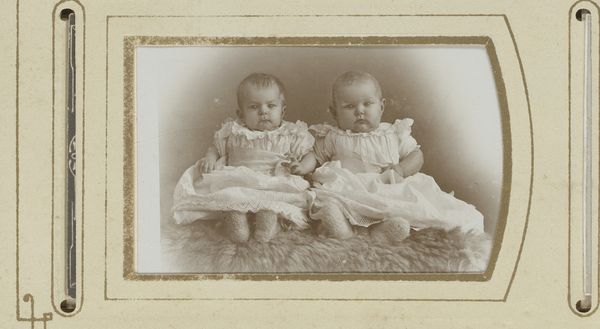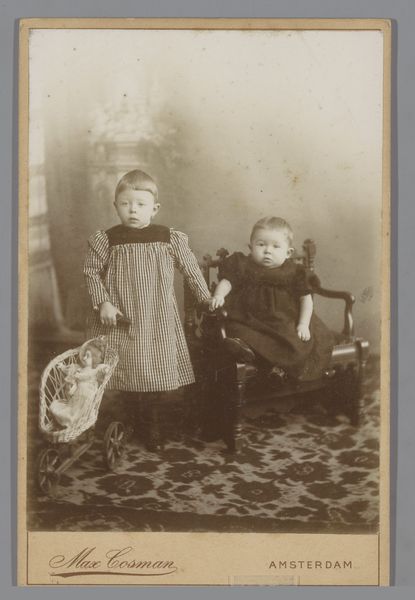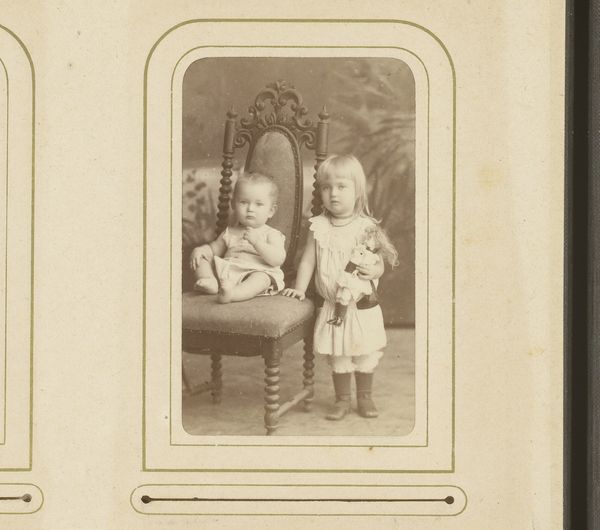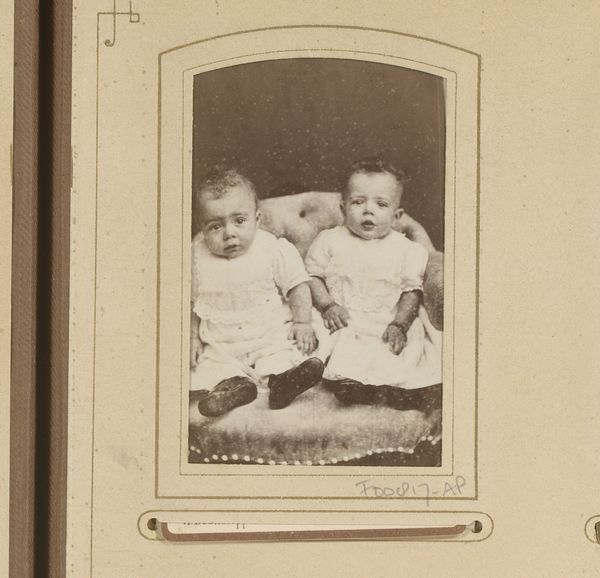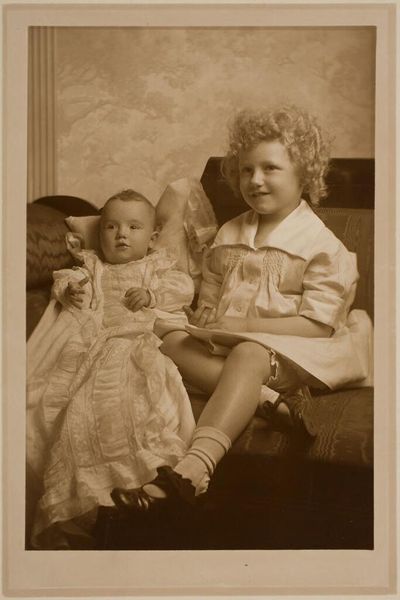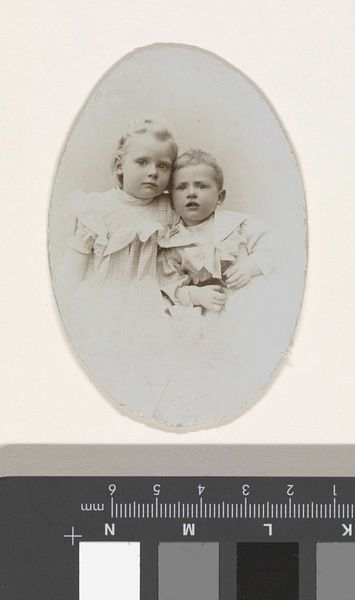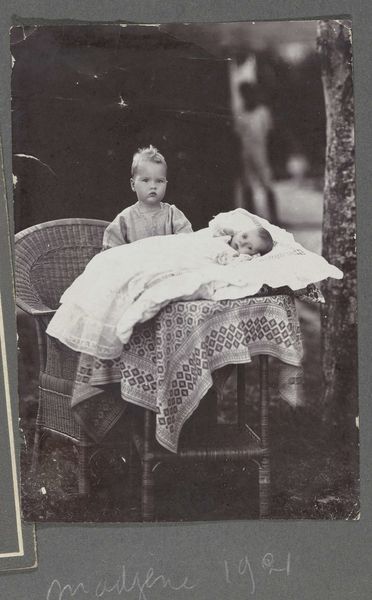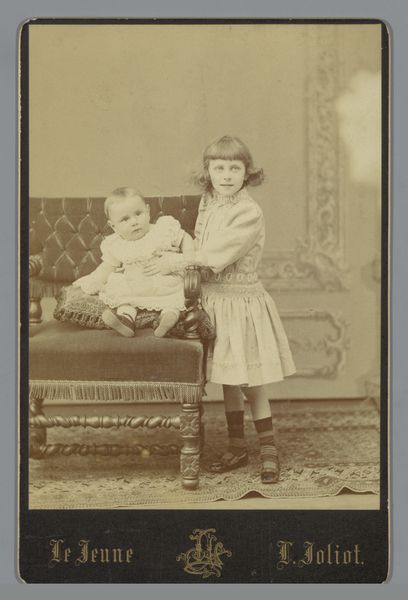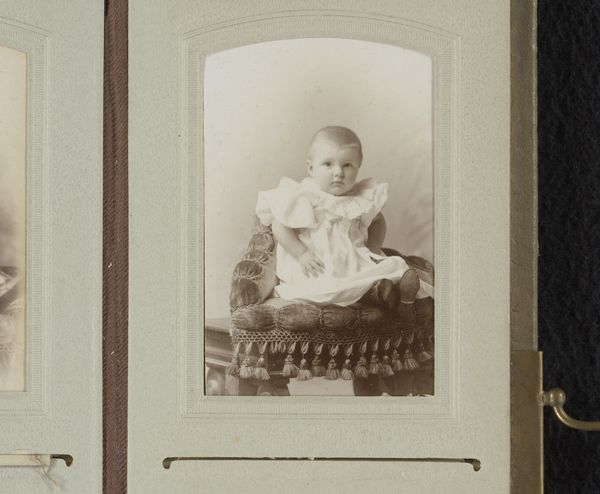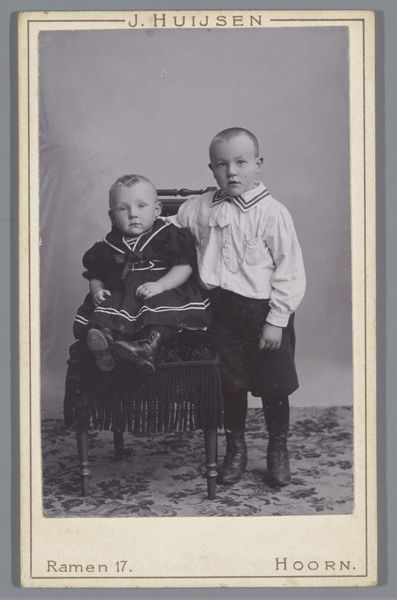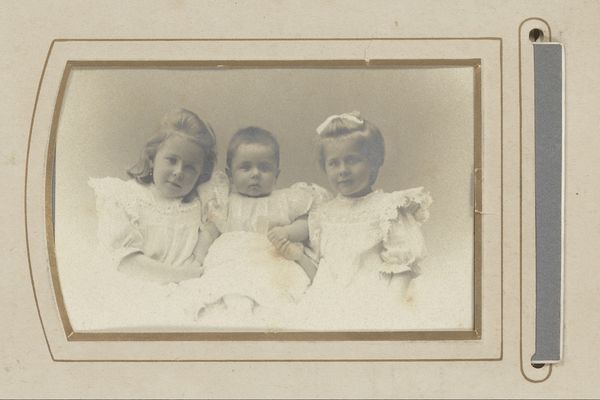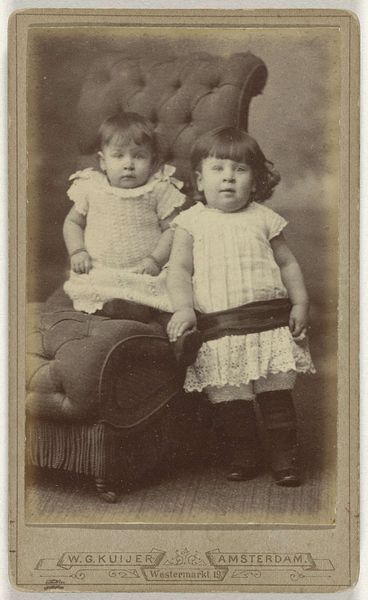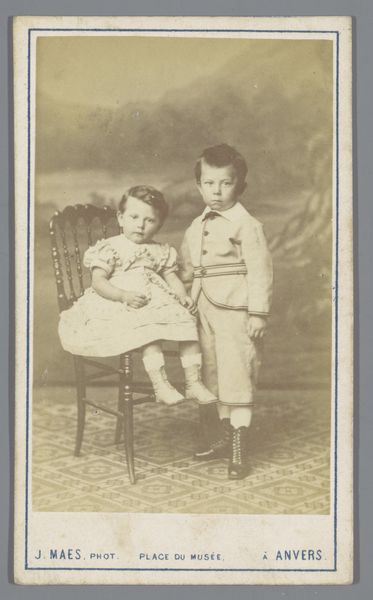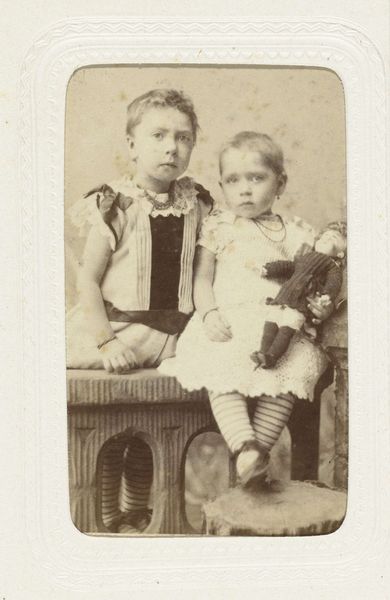
Portret van twee baby's, waarschijnlijk de tweeling Ad en Johanna van der Kop after 1901
0:00
0:00
willemcarelvanderkop
Rijksmuseum
photography
#
portrait
#
still-life-photography
#
photography
Dimensions: height 73 mm, width 98 mm
Copyright: Rijks Museum: Open Domain
Willem Carel van der Kop probably made this photograph of two babies with a glass plate negative sometime in the late 19th or early 20th century. Photographs like this one were made using a wet collodion process, a technique which required coating a glass plate with light-sensitive chemicals, exposing it in the camera, and then developing it immediately. This laborious process demanded skill and speed. The ambrotype, as photographs like this are known, often served as an affordable alternative to painted portraits. They democratized image-making during the Industrial Revolution, aligning aesthetics with capitalist modes of production. Reflecting on van der Kop’s image and the process behind it challenges traditional notions of art. It urges us to consider the social and cultural contexts in which art is produced, blurring the lines between craft, technology, and artistic expression.
Comments
No comments
Be the first to comment and join the conversation on the ultimate creative platform.
